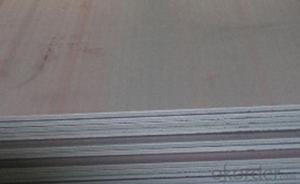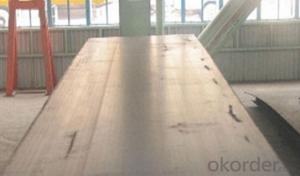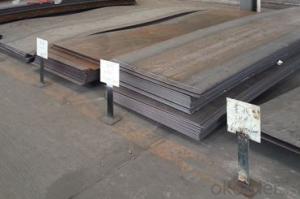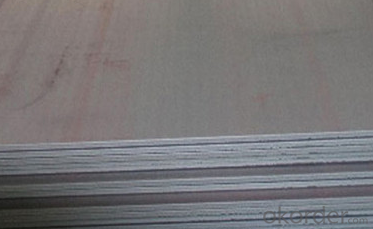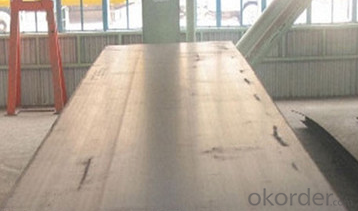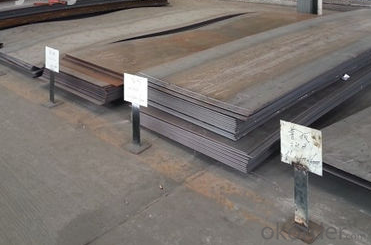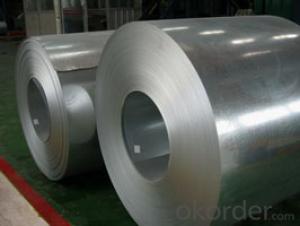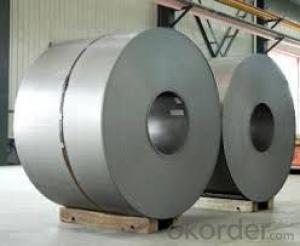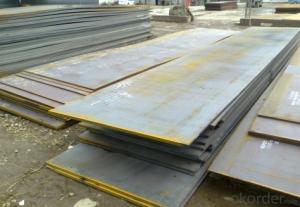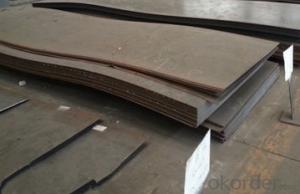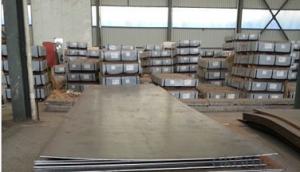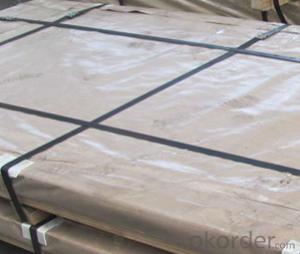Hot Rolled Carbon Steel Sheet A678 CNBM
- Loading Port:
- Qingdao
- Payment Terms:
- TT OR LC
- Min Order Qty:
- 10 pc
- Supply Capability:
- 30 pc/month
OKorder Service Pledge
Quality Product, Order Online Tracking, Timely Delivery
OKorder Financial Service
Credit Rating, Credit Services, Credit Purchasing
You Might Also Like
Quick Details
| Standard: | AISI, ASTM, DIN, GB, JIS | Grade: | A572,A573,A633,A678,A709,A710,G3101,G3136,etc | Thickness: | 1mm-200mm |
| Brand Name: | SHOU GANG GROUP, AN STEEL | Model Number: | Q235 | ||
| Type: | Steel Plate | Technique: | Hot Rolled | Surface Treatment: | Coated |
| Application: | widely | Special Use: | High-strength Steel Plate | Width: | 1000mm-3000mm |
| Length: | 1000mm-12000mm | Price Term: | FOB CIF CFR |
Packaging & Delivery
| Packaging Details: | standard seaworthy export packing or as the request of customers |
| Delivery Detail: | 10 days after deposit or according to customers' quantity |
Specifications
hot rolled carbon steel sheet
1.Thickness:1mm-200mm
2.Length:1000mm-12000mm
3.Width:1000mm-2000mm
hot rolled carbon steel sheet
| Product | HR steel plate prices carbon steel plate prices per kg |
| MOQ | 25 ton |
| Thickness | 1mm-200mm |
| Width | 1000mm-3000mm |
| Length | 1000mm-12000mm |
| Application | widely |
| Standard | AISI,ASTM,BS,DIN,JIS,GB,etc |
| Grade | A572,A573,A633,A678,A709,A710,G3101,G3136,etc |
| Tpye | Steel plate |
| Surfacing | Coated |
| Productive Technology | Hot Rolled & Cold Rolled |
| Port | |
| Payment Terms | L/C,T/T,Western Union,MoneyGram |
| Product Ability | 5000 tons per month |
| Delivery | 10 days after deposit or according to customers' quantity |
| Packing | standard seaworthy export packing or as the request of customers |
- Q: Are steel sheets suitable for high-vibration environments?
- Yes, steel sheets are suitable for high-vibration environments. Steel is a strong and durable material that can withstand vibrations without experiencing significant deformation or damage. It is commonly used in industries such as construction, automotive, and aerospace, where high-vibration environments are common. Additionally, steel sheets can be designed and manufactured to have vibration-damping properties, further enhancing their suitability for such environments.
- Q: Do the steel sheets have a smooth surface finish?
- Yes, the steel sheets have a smooth surface finish.
- Q: Can steel sheets withstand high temperatures?
- Yes, steel sheets can withstand high temperatures.
- Q: What is the average cost of steel sheets per square foot?
- The average cost of steel sheets per square foot can vary depending on factors such as thickness, quality, and market conditions. It is recommended to contact suppliers or conduct research to get the most accurate and up-to-date pricing information.
- Q: Who knows the wire width of the steel mesh?
- Steel net is diamond, respectively from the left and right (up or down) with two curved metal strips, the two metal strips are generally not the same thickness, the thickness is the stem width, the width is less than the thickness of material.
- Q: How is the quality of steel sheets determined?
- Several factors and tests determine the quality of steel sheets. The chemical composition of the steel is a primary factor, including the presence and percentage of elements such as carbon, manganese, silicon, and alloying elements like chromium, nickel, and molybdenum. The specific composition impacts the steel's strength, durability, and resistance to corrosion. The mechanical properties of the steel are also important, assessed through tests like tensile strength, yield strength, elongation, hardness, and impact resistance. These tests determine the steel's ability to withstand forces and deformation without failure. Surface quality plays a crucial role as well. The surface must be defect-free, without cracks, scratches, pits, or any irregularities that could affect performance or appearance. Thickness and uniformity are crucial factors too. Thickness is measured using methods like ultrasonic gauges or micrometers to ensure compliance with specifications. Deviations from the required thickness can impact structural integrity and performance. Weldability, formability, and machinability are also tested, determining suitability for specific applications. These tests evaluate the steel's behavior during fabrication processes like welding, bending, or machining. Overall, the quality of steel sheets is determined through a comprehensive evaluation of their chemical composition, mechanical properties, surface quality, thickness, and other performance characteristics. These assessments ensure compliance with standards and suitability for intended applications.
- Q: What are the functions and classifications of galvanized sheet?
- Galvanized sheet prices of different types is not the same, of course, different industries in the field of galvanized plate and material prices are not the same, so you choose in the galvanized plate, must be supplied to the use of your sales, so that they will come to you through your use of choosing suitable for you product.
- Q: What are the different thickness options for steel sheets?
- The thickness options for steel sheets vary depending on the specific application and industry requirements. Common thickness options for steel sheets range from thin gauges, such as 26 gauge (0.0179 inches) or 30 gauge (0.0120 inches), to thicker gauges, such as 16 gauge (0.0598 inches) or 10 gauge (0.1345 inches). However, it is important to note that steel sheets can be customized to meet specific thickness requirements beyond these standard options.
- Q: Can the steel sheets be used for industrial machinery?
- Yes, steel sheets can be used for industrial machinery as they are strong, durable, and have excellent load-bearing capabilities, making them suitable for various applications in the industrial sector.
- Q: Are steel sheets suitable for interior ceiling panels?
- Yes, steel sheets are suitable for interior ceiling panels. They are durable, fire-resistant, and can provide a modern and sleek appearance to any space. Additionally, steel sheets are easy to clean and maintain, making them a practical choice for interior ceiling applications.
Send your message to us
Hot Rolled Carbon Steel Sheet A678 CNBM
- Loading Port:
- Qingdao
- Payment Terms:
- TT OR LC
- Min Order Qty:
- 10 pc
- Supply Capability:
- 30 pc/month
OKorder Service Pledge
Quality Product, Order Online Tracking, Timely Delivery
OKorder Financial Service
Credit Rating, Credit Services, Credit Purchasing
Similar products
Hot products
Hot Searches
Related keywords
